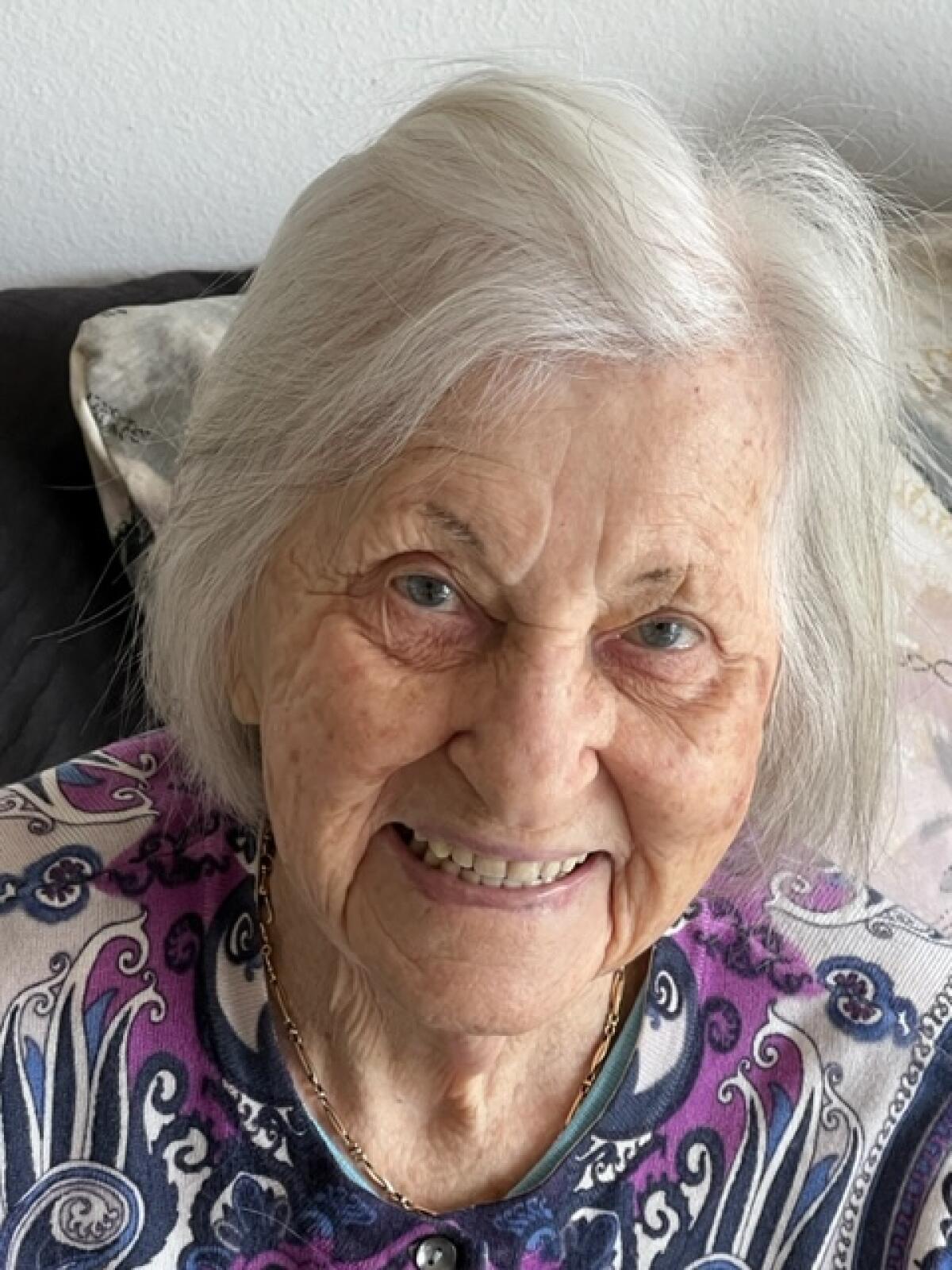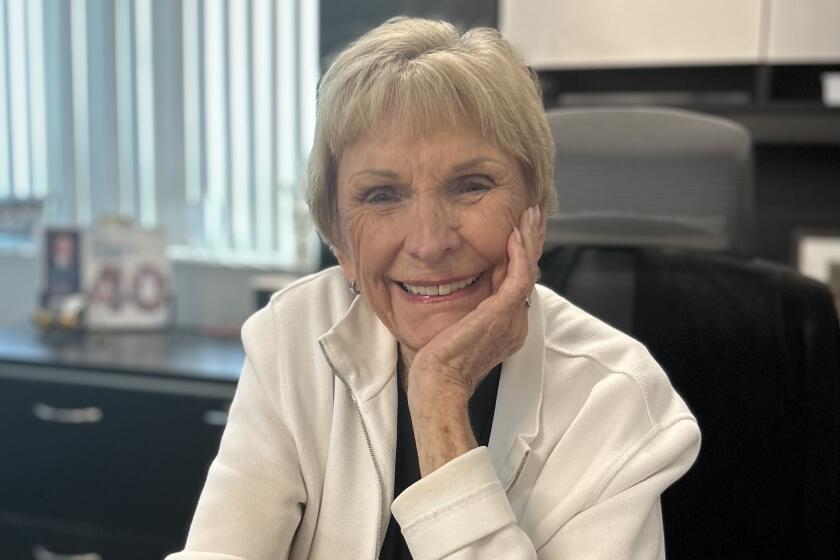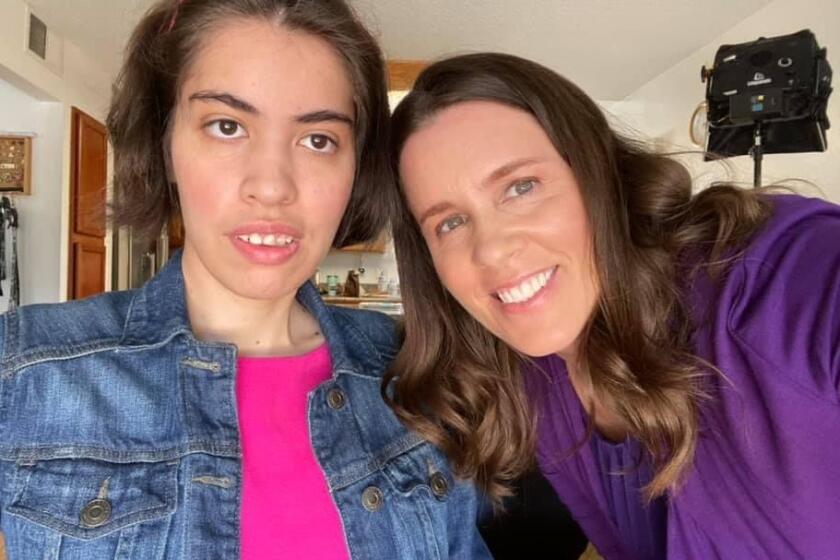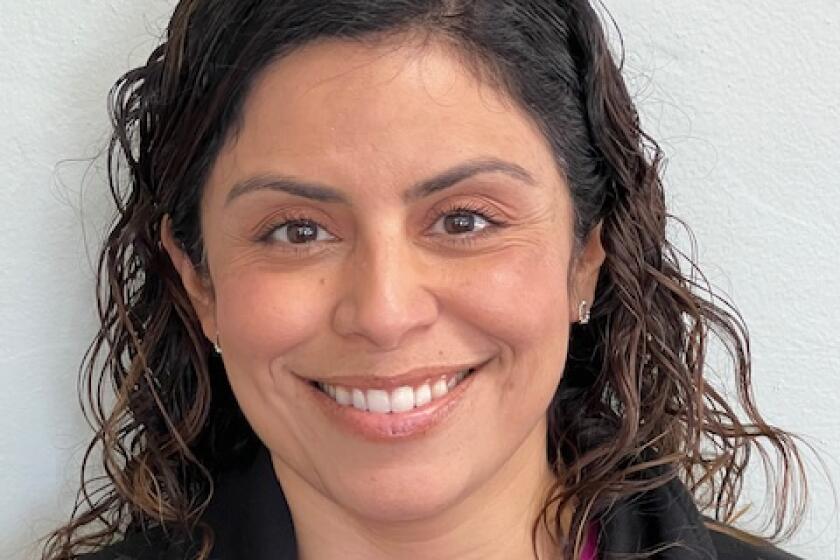Someone San Diego Should Know: Rose Schindler
She has committed her life to ensuring the horrors of the Holocaust will remain known
Rose Schindler stood in front of the middle school class. It was 1972 and the first time she ever spoke to anyone outside of family about the Holocaust. Her knees were shaking as she began to talk.
Soon she felt tears as she recalled her father’s last request to her, “Live so you can tell the world what they are doing to us.”
Born in 1929, she grew up on a family farm in Seredne, Czechoslovakia, with her parents and seven siblings.
Most of what they ate was produced on the farm. The children helped milk the cows, collect eggs and tend to crops.
The village was small but had nearly everything needed.
“We had a nice life,” she said.

However, life changed in 1938 when Hungarian soldiers (aligned with Germany) occupied Seredne. Hatred and antisemitism emerged.
Schindler, whose family was Jewish, saw friends abandon her. She was called “dirty Jew” and attacked.
Jewish children were barred from schools.
The family was denied basic services and could not travel without approval. They were required to wear gold Stars of David.
Eventually, Rose and her family were taken from their home and forced into a train cattle car along with 60 to 80 people. They spent days with no water, toilets or seating.
When they arrived at Auschwitz, Poland, they were met by German SS officers who undressed them, cut off their hair and confiscated their belongings.
Death was all around. The smell of burning flesh and decaying bodies was in the air. Crying could be heard from the crematorium.
People were diseased and malnourished from scarce and awful food. Rose rapidly lost weight. She was beaten when she complained.
There were lines daily from which people were selected for either death or slavery. Rose, then 14, was selected for slavery because she said she was 18.
Although the nightmare was over when on May 6, 1945, Rose along with other survivors were liberated, the pain continued. She lost her parents and five siblings, including her toddler brother. Of some 150 extended family members, 11 survived.
After the war she moved to Britain. There, she met Max, a survivor of multiple concentration camps. “I fell in love with Max right away. But it took me awhile to catch him.”
They were married in 1950 and tried to put the Holocaust behind them.
“We did not talk about what happened and just looked to the future,” she said. “That’s how we coped.”
The couple came to America seeking a new life with $20 in their pockets and, due to the Holocaust, only fourth-grade educations.
After earning money working in New York, they moved to San Diego in 1957 eager to begin new careers.
Max learned about computers and eventually advanced to project manager at General Dynamics, building the company’s online computing division.
Rose, who had worked in New York’s garment district, opened Roxy’s Fabrics, which she ran for 11 years.
They were married 67 years until Max’s passing in 2017.
Today, Rose remains in the San Diego home she and Max built 56 years ago. Their four children and nine grandchildren are all college graduates and have a variety of professional occupations. They also have two young great-grandchildren.
Following her first talk in 1972, she continued honoring her father’s last request.
Before the pandemic she averaged 80 to 90 talks annually, mostly to students. Often using Zoom, she has since averaged 40-65 nationwide.
She gave seven talks last month — at age 93 and despite battling illness.
“Every time I tell my story it brings tears to my eyes,” she said.
A documentary was produced about her talks and she has received numerous awards, including an honorary high school diploma.
In 2019, a book was published, “Two Who Survived,” detailing Rose and Max’s life experiences.
“The Germans did not succeed in their endeavor to silence the Jews or prevent anyone from telling of their atrocities,” Rose said. Telling what happened, she explained, is “a way to help make sure that events like the Holocaust never happen again.”
About this series
Jan Goldsmith is an emeritus member of the U-T’s Community Advisory Board. He is an attorney and former law partner, judge, state legislator, San Diego city attorney and Poway mayor.
Someone San Diego Should Know is a column written by members of the U-T’s Community Advisory Board about local people who are interesting and noteworthy because of their experiences, achievements, creativity or credentials.


